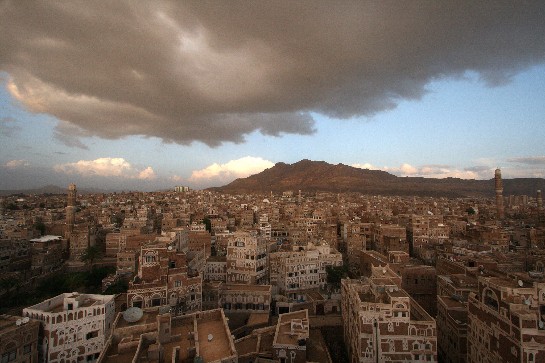
What’s Up With Yemen?
On Tuesday 1,200 prisoners, including al-Qaeda suspects, escaped from a prison in central Yemen. This outbreak is a US security issue because it contributes to instability in the Middle East, benefitting extremist groups. In order to understand the current situation, it is necessary to look at Yemen’s internal actors, the external actors affecting the area, and how this conflict contributes to a rise in non-state militarism.
Internally, Yemen’s current civil war can be traced back to the Houthi rebellion in 2004, when the government tried to arrest a prominent religious leader of the Houthis for openly opposing the U.S. invasion of Iraq. The rebels claimed that they were fighting against discrimination by the majority Sunni government, while the incumbents claimed that the Houthis were trying to overthrow the republican system and establish religious rule. The Houthis supported the Yemeni revolution in 2011, which overthrew President Saleh’s administration.
Following the revolution, President Abdrabbuh Mansour Hadi was democratically elected. The Houthis demanded that the government reinstate fuel subsidies and create a more representative form of government. When Hadi presented a constitution that divided Yemen into six political regions, the Houthis disagreed and staged a coup, forcing Hadi to flee the country. Since then the country has internally been in its current state of civil war.
There are many external actors involved in the Yemen conflict. President Hadi is a close ally of both the US and Saudi Arabia. He has been helping the US with the war on terror, allowing US drone strikes throughout the country to target Al Qaeda operatives. In June US drones reportedly killed al-Qaeda’s second in command, the biggest victory since Osama bin Laden in 2011. However, the strategic considerations behind drone attacks have been highly debated as they drive anti-American sentiment and have the potential to turn large populations against the US.
Hadi is also militarily backed by Saudi Arabia. Yemen sits on a major shipping route for Saudi Arabian oil at the tip of the Red Sea. Millions of barrels of oil pass through the water there daily. Since Hadi was driven out of the country, Saudi Arabia has been launching airstrikes against the Houthis.
Iran is suspected to be militarily backing the Houthis, although the Iranian government denies this. However, Iran responded to Saudi Arabia’s airstrikes against the Houthis by deploying warships. When the US responded by also sending warships, Iran called for peace talks, which were held at the UN conference in Geneva on June 14. These talks failed to produce a peace agreement, and no date has been set for further talks.
After the failed talks, the UK announced a £40 million donation to the UN’s humanitarian appeal for Yemen, to pay for emergency shelters, healthcare, water, and food assistance. The conflict has left an estimated 20 million people, 80% of the population, in need of aid. A major issue for US security is that the increasing chaos in the country allows violent extremists to use the ungoverned territory to stage international attacks.
The issue for US national security is primarily that the beneficiary of this chaos is al-Qaeda. With no formal Yemeni government to suppress them, al-Qaeda took over a major airport and oil terminal in April. The weakened government has a smaller capacity to fight terrorism, which leaves them more vulnerable to attacks and expansion within their borders. The longer the conflict in Yemen continues, the less scrutiny is put on al-Qaeda’s branch in the region.
Peace in Yemen is important to US national security in order to stabilize the region and continue fighting al-Qaeda. Internal and external actors, and their effect on non-state actors, are important factors in understanding the current conflict in relation to US security. It is in the US’ best interest that the two warring factions in Yemen create a peace agreement that allows a stable and representative government to step forward and secure the area.





